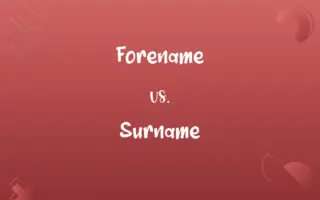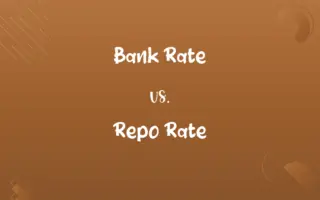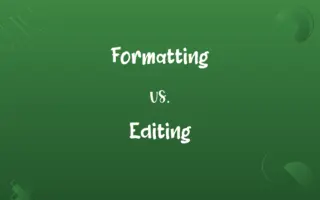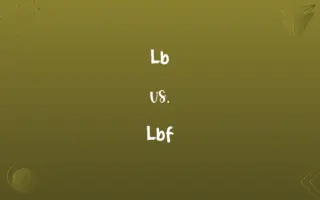Serf vs. Peasant: Know the Difference

By Shumaila Saeed || Updated on December 25, 2023
A serf is a laborer bound under feudalism to work on a lord's estate, whereas a peasant is a low-status farmer owning or renting land.
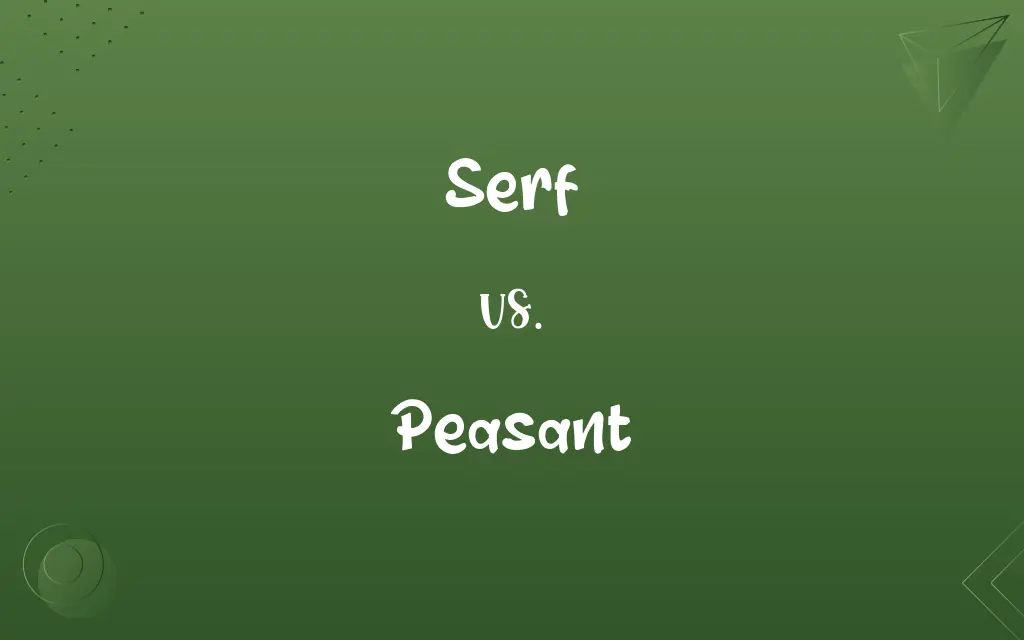
Key Differences
Serfs were agricultural laborers in the feudal system who were tied to working on a lord's estate. Peasants were low-status farmers who could own or rent land but had limited rights and freedoms.
Shumaila Saeed
Dec 06, 2023
Serfs were legally bound to the land they worked on and could not leave without the lord's permission. Peasants, while low in social hierarchy, were not legally bound to a particular estate.
Shumaila Saeed
Dec 06, 2023
Serfs provided labor in exchange for protection and a place to live. Peasants, though often poor, could engage in trade and even accumulate some wealth.
Shumaila Saeed
Dec 06, 2023
Serfs had very limited rights and were subject to the lord's control. Peasants had more freedom but still faced heavy taxes and societal constraints.
Shumaila Saeed
Dec 06, 2023
Serfs had little to no opportunity for social mobility. Peasants, although limited, had more chances to improve their status, especially through trade or land acquisition.
Shumaila Saeed
Dec 06, 2023
ADVERTISEMENT
Comparison Chart
Mobility
Restricted, needed lord's permission
More mobile, could move freely
Shumaila Saeed
Dec 06, 2023
Economic Opportunities
Limited to labor on lord's estate
Could engage in trade, accumulate wealth
Shumaila Saeed
Dec 06, 2023
ADVERTISEMENT
Serf and Peasant Definitions
Serf
A serf's status was inherited, passed down from generation to generation.
Born a serf, he knew his children would inherit his unenviable status.
Shumaila Saeed
Nov 27, 2023
Peasant
Peasants could own their tools and modest dwellings, unlike serfs.
The peasant proudly owned his plow, a symbol of his modest independence.
Shumaila Saeed
Nov 27, 2023
Serf
Serfs provided labor in exchange for protection and a place to live.
The serfs tended the lord's crops, their labor securing their humble homes.
Shumaila Saeed
Nov 27, 2023
Peasant
Peasants were the lowest social class in rural areas, primarily farmers.
As a peasant, she knew the village's social gatherings were not for her.
Shumaila Saeed
Nov 27, 2023
Serf
Serfs had limited personal freedoms and were subject to the lord's demands.
The serf could not marry or travel without the lord's express permission.
Shumaila Saeed
Nov 27, 2023
ADVERTISEMENT
Peasant
Peasants, though poor, had more freedom than serfs in the feudal system.
The peasant had the freedom to sell his produce in the local market.
Shumaila Saeed
Nov 27, 2023
Serf
A serf is a laborer bound to a lord's estate in feudal times.
The serf worked tirelessly in the fields, knowing his life was tied to the land.
Shumaila Saeed
Nov 27, 2023
Peasant
A member of a class of small farmers and farm laborers, especially in a preindustrial or underdeveloped society.
Shumaila Saeed
Oct 19, 2023
Serf
Serfs were considered part of the property of the land in the feudal system.
The new lord took over the estate, along with its serfs and livestock.
Shumaila Saeed
Nov 27, 2023
Serf
A member of the lowest feudal class, legally bound to a landed estate and required to perform labor for the lord of that estate in exchange for a personal allotment of land.
Shumaila Saeed
Oct 19, 2023
Serf
An agricultural laborer under various similar systems, especially in Russia and eastern Europe in the 1700s and 1800s.
Shumaila Saeed
Oct 19, 2023
Peasant
A member of the lowly social class that toils on the land, constituted by small farmers and tenants, sharecroppers, farmhands and other laborers on the land where they form the main labor force in agriculture and horticulture.
Shumaila Saeed
Oct 19, 2023
Serf
A partially free peasant of a low hereditary class, attached like a slave to the land owned by a feudal lord and required to perform labour, enjoying minimal legal or customary rights.
Shumaila Saeed
Oct 19, 2023
Peasant
(attributive) Characteristic of or relating to a peasant or peasants; unsophisticated.
Peasant class
Shumaila Saeed
Oct 19, 2023
Serf
A servant or slave employed in husbandry, and in some countries attached to the soil and transferred with it, as formerly in Russia.
In England, at least from the reign of Henry II, one only, and that the inferior species [of villeins], existed . . . But by the customs of France and Germany, persons in this abject state seem to have been called serfs, and distinguished from villeins, who were only bound to fixed payments and duties in respect of their lord, though, as it seems, without any legal redress if injured by him.
Shumaila Saeed
Oct 19, 2023
Serf
(Middle Ages) a person who is bound to the land and owned by the feudal lord
Shumaila Saeed
Oct 19, 2023
Peasant
A countryman; a rustic; especially, one of the lowest class of tillers of the soil in European countries.
Shumaila Saeed
Oct 19, 2023
Peasant
A peasant is a low-status farmer, often working on rented or owned land.
The peasant toiled on his small plot of land, barely making ends meet.
Shumaila Saeed
Nov 27, 2023
Peasant
Peasants were often subject to taxes and services for the local lord.
Each autumn, the peasant gave a portion of his harvest to the lord as tax.
Shumaila Saeed
Nov 27, 2023
Repeatedly Asked Queries
Were serfs slaves?
No, serfs were not slaves. They were bound to the land but had some legal protections and personal rights.
Shumaila Saeed
Dec 06, 2023
Were serfs paid for their work?
Serfs were not typically paid in money but had a right to live on and work the land for their sustenance.
Shumaila Saeed
Dec 06, 2023
Could serfs leave the estate they were bound to?
Serfs needed permission from their lord to leave the estate.
Shumaila Saeed
Dec 06, 2023
Were serfs a part of the feudal military?
Serfs typically were not soldiers, but they might be called upon for labor during conflicts.
Shumaila Saeed
Dec 06, 2023
Could peasants own land?
Yes, peasants could own or rent land, although they were often poor.
Shumaila Saeed
Dec 06, 2023
Did serfs have a family life?
Yes, serfs had families, but aspects like marriage often required the lord's approval.
Shumaila Saeed
Dec 06, 2023
Could peasants become wealthy?
It was rare, but some peasants could accumulate wealth, especially through trade.
Shumaila Saeed
Dec 06, 2023
Did peasants have any political power?
Peasants generally had little political power, with limited rights.
Shumaila Saeed
Dec 06, 2023
Were all peasants farmers?
Most peasants were farmers, but some engaged in trades or crafts.
Shumaila Saeed
Dec 06, 2023
Did peasant children go to school?
Most peasant children did not attend school and were trained in farming or a trade.
Shumaila Saeed
Dec 06, 2023
Did peasants have any education?
Most peasants were uneducated, focusing on survival and work.
Shumaila Saeed
Dec 06, 2023
Was serfdom common in all medieval societies?
Serfdom was common in many parts of Europe, but not all medieval societies had serfs.
Shumaila Saeed
Dec 06, 2023
Could peasants participate in local government?
Peasants had limited roles in local governance, often overshadowed by nobles.
Shumaila Saeed
Dec 06, 2023
Did peasants have religious freedoms?
Peasants generally followed the religion of the region but had limited religious autonomy.
Shumaila Saeed
Dec 06, 2023
Did peasants have holidays?
Peasants observed religious and local holidays, though their leisure time was limited.
Shumaila Saeed
Dec 06, 2023
Were there female serfs?
Yes, there were female serfs who worked alongside male serfs.
Shumaila Saeed
Dec 06, 2023
Were serfs able to buy their freedom?
In some cases, serfs could buy their freedom, but this was not common.
Shumaila Saeed
Dec 06, 2023
How did serfdom end?
Serfdom gradually ended through various legal and social reforms, especially during the late Middle Ages.
Shumaila Saeed
Dec 06, 2023
Could serfs inherit property?
Serfs could not own property, so they had little to inherit except for personal belongings.
Shumaila Saeed
Dec 06, 2023
What did peasants eat?
Peasants mostly ate a simple diet of bread, vegetables, and sometimes meat.
Shumaila Saeed
Dec 06, 2023
Share this page
Link for your blog / website
HTML
Link to share via messenger
About Author
Written by
Shumaila SaeedShumaila Saeed, an expert content creator with 6 years of experience, specializes in distilling complex topics into easily digestible comparisons, shining a light on the nuances that both inform and educate readers with clarity and accuracy.
